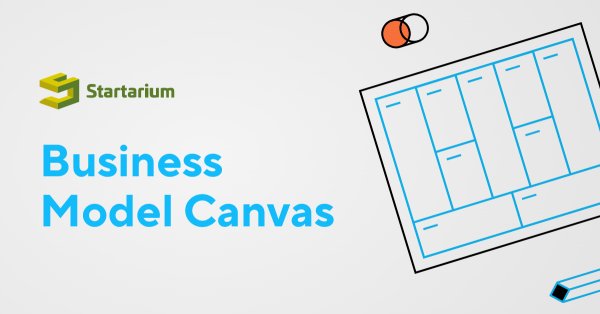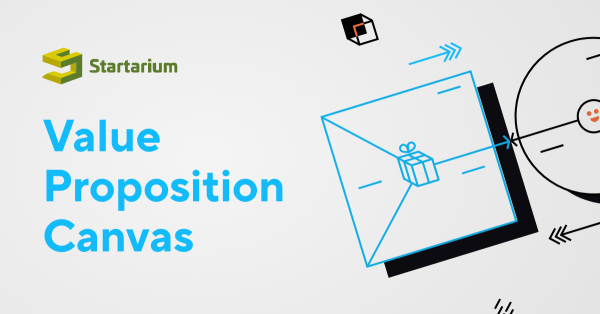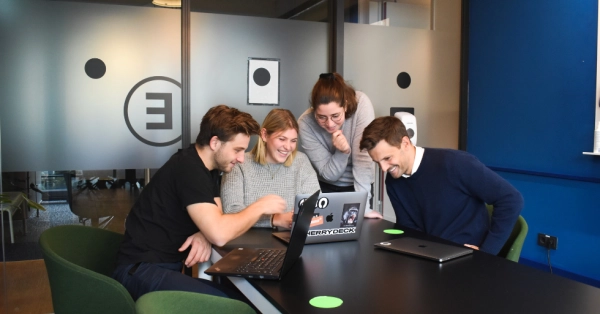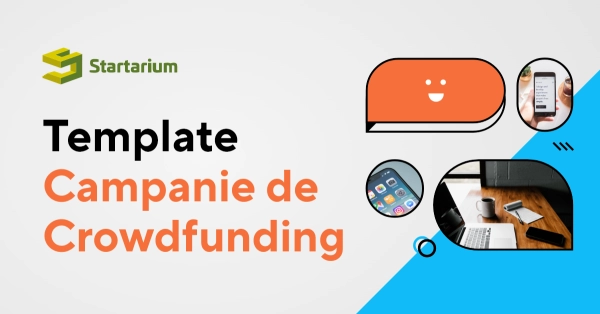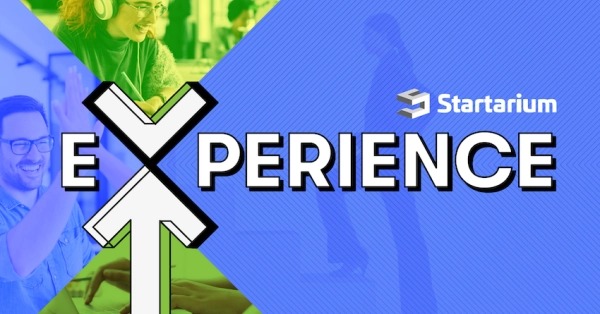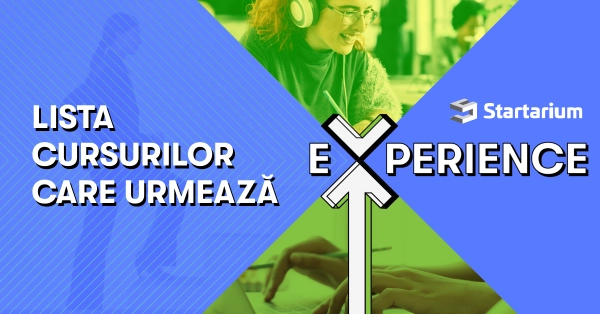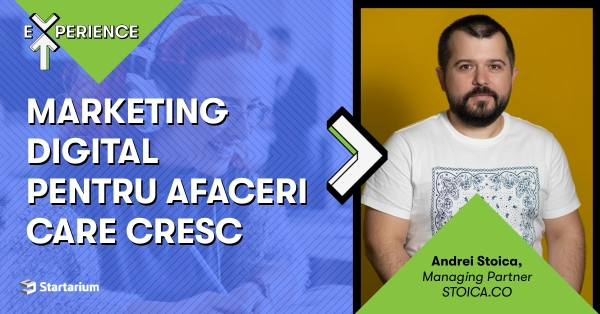There are few responsibilities an entrepreneur has that have as much impact as choosing the team. Well-prepared interviews are an important part of this endeavor. Structuring the interview HR professionals often use a STRUCTURED INTERVIEW. It strictly follows a set of questions to be able to gather similar information about all the candidates entering the interview. This clear structure will help you compare apples to apples when making the hiring decision. My recommendation is to set a common set of criteria for all candidates -> draft a few questions for every criterion. We'll cover the manner in which you have to word the questions later on. That doesn't mean you can't customize the interview according to the candidate sitting in front of you. Defining the competence we are looking for Competences consist of knowledge - abilities - attitudes. They translate into behaviors that you see with the naked eye: what the candidate does - these behaviors can be explored in the interview. It sets a uniform level for the whole team to be able to build the organizational culture. You can choose a series of knowledge - skills - attitudes that you want every member of the team to have. This will provide you with a common ground on which you can build your organizational culture. The entrepreneur is a "curator" of the organizational culture, and at the beginning, every new colleague has a big impact on the culture of your startup. Identify the knowledge - skills - attitudes specific to the role you are recruiting for Relevance increases if we track behaviors that have been repeatedly displayed by the candidate in the past, and not just hypothetical behaviors they would or could display. In the latter case it is much easier for the candidate to give the answers that we want to hear. What questions should you ask? Behavioral questions start from the premise that past performance is the best predictor of future performance. The Behavioral Interview gathers relevant information about the candidate's competencies by identifying how they acted in certain real situations in the past. STAR method In order to create behavioral questions, you can use a simple method – STAR: SITUATION - "Give me an example of a situation where you worked on two projects at once." TASK - "What were your responsibilities?" ACTION - "How did you prioritize your tasks on the two projects?" RESULT - "What results did you get?" If you are unclear or in doubt about one of the points mentioned above, dig deeper - ask additional questions, ask for more details. For example: What were your responsibilities, how were they allocated in time and what role did your colleagues have in that task? For every criterion you evaluate, you must have 2-3 questions with the STAR structure (Situation, Task, Action, Result). Sometimes candidates give superficial answers. Your role is to push to identify relevant examples. Additional recommendations – what to do and what to avoid Focus the interview on positive aspects of the candidate's experience. Give candidates an opportunity to talk about their achievements. You will create an open atmosphere where you can also discuss about the areas where the candidate needs to improve. Make sure you get answers about the candidate's tasks, actions and results, not just about the team's. Look for answers that start with I, not just WE, because what you are interested in is the contribution of the candidate that is sitting in front of you. Don't settle for unclear answers to your questions. If the first questions are not answered clearly, insist to make sure that at the end of the interview you have covered all the competencies. Don't put the candidate in a stressful situation. You must also pay attention to the employer brand. A candidate you put in uncomfortable situations will not have nice things to say about you. If you are careful about how you structure the interview, what questions you ask, the do's and don'ts, then the interview should not cause you problems in recruiting the right person for your startup.

What does employer branding mean?
Employer Branding is how your company is perceived as a place to work. It is, like any other brand, something that is built over time, based on constant communication to your target group. And no, it's never too early to start working on it. You’ve started your own business out of a desire to make it profitable and sustainable, right? This means that, sometime in the future, you being the only employee of the company will probably no longer be enough and you will need to form a team.
What will make these people want to work with you? Most likely, it will be you. Your company brand is actually your personal brand. That's why it's important for people to know you and easily find out how you work. Beyond this, when a candidate chooses to work with you, they will consider several variables. That's why it's important to know what matters to those people you want by your side.
Step 1: Find out what the target profiles of your potential employees are.
The first step is to know what kind of people you are looking for. Who is your target group when thinking about potential employees? As mentioned before, building an employer brand is similar to working on a consumer brand, and all branding starts with the consumer. In our case, it starts with the candidates we want to make our employees.
Step 2: Know their desires and preferences
The second step is to know their desires and preferences. Once you have a target group, you can leverage your network of acquaintances and find out what this type of candidate is looking for in an employer. I'll let you in on a little secret: everyone expects to be paid well and on time. So focus on less obvious things.
People who are willing want to work with a start-up are probably the entrepreneurial type themselves. Maybe they have a small business or have taken a course in this field. They are very active, they want to learn a lot, they are very well connected and they want to make a difference through their work. Don't think that I have just done your homework. I actually didn’t. Because this profile is what every company is looking for. It will be up to you to find 2-3 more elements that speak even more specifically about your business.
Step 3: Think about how you will provide them with value
The third step is to think about how you will provide value to those you want to get to work for you. Maybe your idea is so innovative that it will be enough to attract people who want to be with you just to make it happen. But not all entrepreneurs are Steve Jobs or Larry Page. The value you offer them can reside in your knowledge, in the exposure to a certain business area or simply in your experience, because the work carried out in a start-up is dynamic and brings immediate results.
The value may also come from the contribution your idea brings. For example, a business in the area of sustainability brings intrinsic value because it makes the world a better place. So ask yourself what the contribution and the meaning of your business are. This is called the Employer Value Proposition or, more simply, the value the employee gets from you, beyond the money you pay for the actual work they do.
How do you actually build your employer brand?
I was saying at the beginning that you need consistent communication and that, in a start-up, the founder is usually the brand, at least in the beginning. This means that you are the one who will do the communication until "I work for Maria” turns into "I work at Colorful Mind". Well, that's not the case for my small business. While a large employer goes to fairs or organizes events worth tens of thousands of euros, for an entrepreneur, the simplest investment is social media.
If you have a Facebook page, a LinkedIn account and an Instagram account, it's time to start talking about your work environment, your schedule, what you do, in addition to everything you say about your products and services. Talk about "how" rather than "what". Do this consistently, perhaps with some scheduled posts, and think of a few visuals and keywords that you'll want to use consistently.
It may sound repetitive, but it takes several interactions with a candidate before they decide to approach you, just like it takes several exposures to an ad before someone decides to buy the product.
Building an employer brand is a difficult task, like all things that are built over time. It's about something personal, the confidence and value others feel you have to offer. But because you're an entrepreneur, it means you already have conviction and passion to pass on.
I wish you all the good luck on your new journey!






